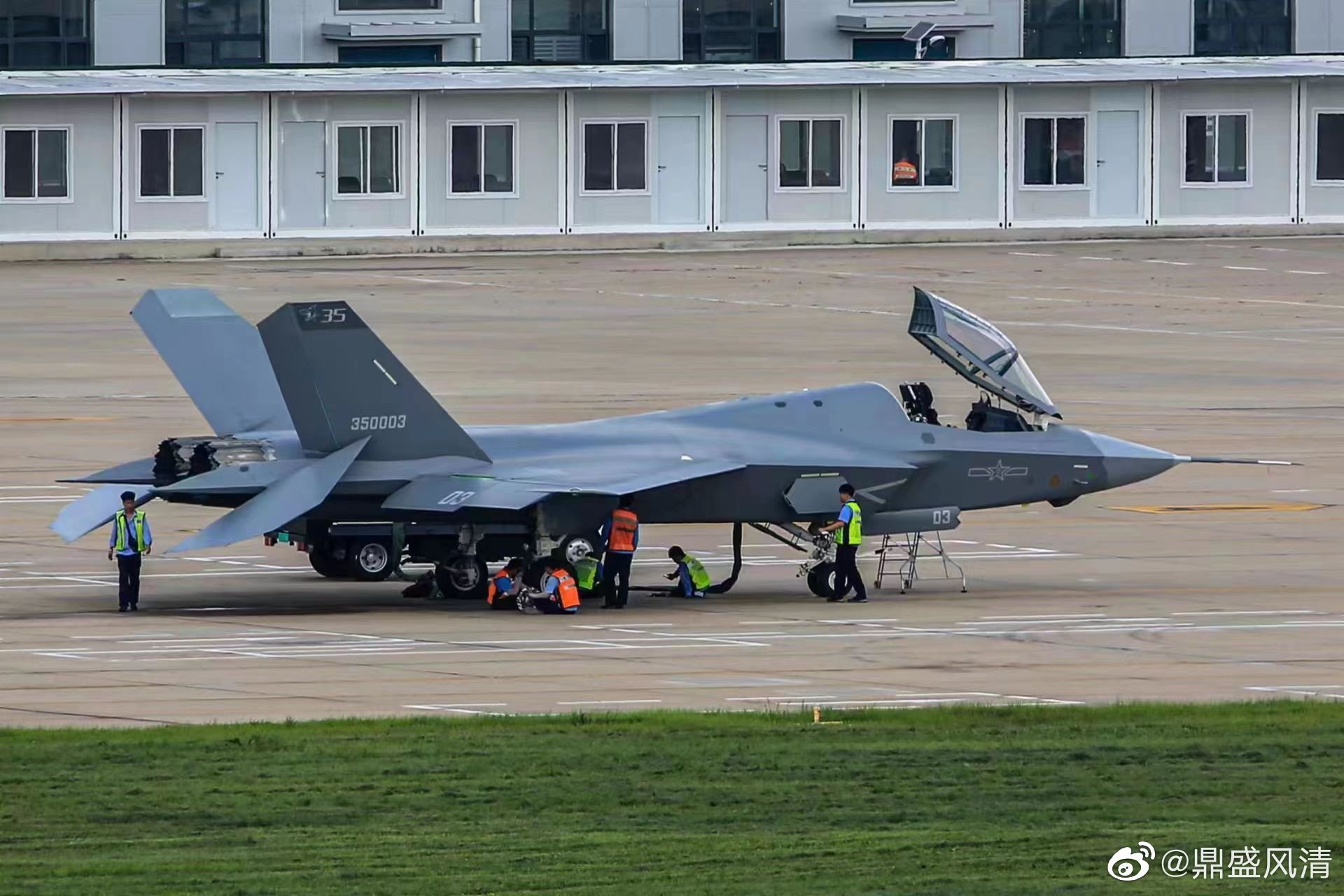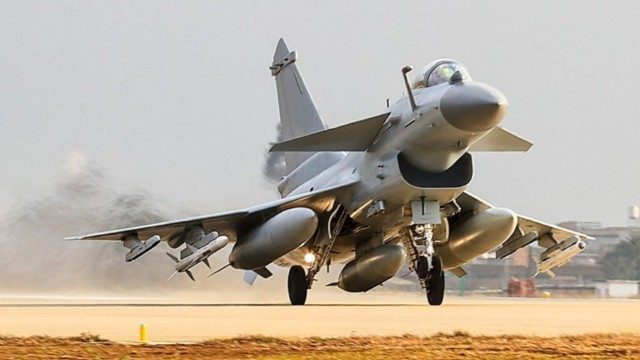China Offers Modern J-10C, J-31 Fighter Jets to Staunch U.S. Ally in the Middle East
The offer to Egypt for the acquisition of the two Chinese-made fighter jets was reportedly made during a recent visit by Egyptian Air Force Chief General Mahmoud Foaad Abdel Gawaad to China, where he met with his counterpart, General Chang Dingqiu, in Beijing.
(DEFENCE SECURITY ASIA) — China has reportedly offered modern J-10C and J-31 fighter jets to Egypt, a strong U.S. ally in the Middle East, to further modernize its air force in the conflict-ridden region.
The J-10C is a 4.5-generation fighter, while the J-31 is a fifth-generation fighter.
Currently, the most advanced aircraft in the Egyptian Air Force is the Rafale, developed by France’s Dassault Aviation.
The offer for these Chinese-made jets was made during a visit by Egyptian Air Force Commander General Mahmoud Foaad Abdel Gawaad to China, where he met with his counterpart, General Chang Dingqiu, in Beijing.
The meeting was at the invitation of General Chang to enhance strategic relations between the two nations.
According to an official statement from the Egyptian Armed Forces, General Gawaad’s visit to China underscores Egypt’s commitment to strengthening military ties with a friendly country.

Discussions included efforts to increase cooperation between the air forces of both countries, particularly in training programs, technology transfer, and joint equipment production.
General Gawaad also met with key players in China’s defense industry, including representatives from the China National Aero-Technology Import & Export Corporation (CATIC) and China North Industries Corporation (NORINCO).
Additionally, he visited Tangshan Air Base, where he and senior Egyptian Air Force officers were treated to a flight demonstration of the J-10C fighter jet.
China has been offering the J-10C to Egypt for several years.
Last year, Middle Eastern defense media reported that Egyptian officials discussed the acquisition with the jet’s manufacturer, Chengdu Aircraft Industry Group, during the LIMA ’23 exhibition in Langkawi.
The J-10C was present at the exhibition as it is the chosen aircraft for the People’s Liberation Army Air Force’s (PLAAF) aerobatic team, “August 1st.”

Currently, Beijing exports the single-engine J-10C only to the Pakistani Air Force.
The J-10C, which the Egyptian Air Force is keen to acquire, was publicly unveiled in China in July 2017 and entered combat service with the Chinese air force in 2018.
Compared to earlier variants, the J-10C is lighter, stealthier, and equipped with a more powerful engine and an active electronically scanned array (AESA) radar for improved target detection capabilities.
Regional military observers estimate that the PLAAF operates approximately 150 J-10C fighter jets.
Meanwhile, the fifth-generation stealth fighter J-31 “Gyrfalcon” or F-31, developed by Shenyang Aircraft Corporation, has also attracted interest from several Middle Eastern countries, including Egypt.
Besides the Middle East, Pakistan has expressed a strong interest in acquiring the J-31 following its acquisition of the J-10C.

Speaking at a new equipment induction ceremony in Islamabad earlier this year, Air Marshal Zaheer Ahmed Baber Sidhu stated that the J-31 would enter service with the Pakistani Air Force “soon.”
He noted that negotiations for the acquisition of the J-31 are underway.
China developed the J-31 for export markets because its first fifth-generation fighter, the J-20 “Mighty Dragon,” is reserved solely for the Chinese Air Force.
The J-31 is a single-seat, twin-engine, medium-sized stealth fighter jet designed to be cost-competitive.
Media reports indicate that the J-31 will also serve on Chinese aircraft carriers, with efforts underway to this end. While primarily intended for export, Pakistan is likely to become the first customer for this stealth fighter.
Reports suggest that China is preparing the J-31 for operations on its aircraft carriers, similar to the F-35B and the latest F-35C developed by Lockheed Martin.
Although the technical specifications of the J-31 are not fully known, its maximum take-off weight (MTOW) has increased to 28,000 kg from 25,000 kg, and it is powered by WS-19 engines with a thrust of 12 tons. — DSA



Comments are closed.